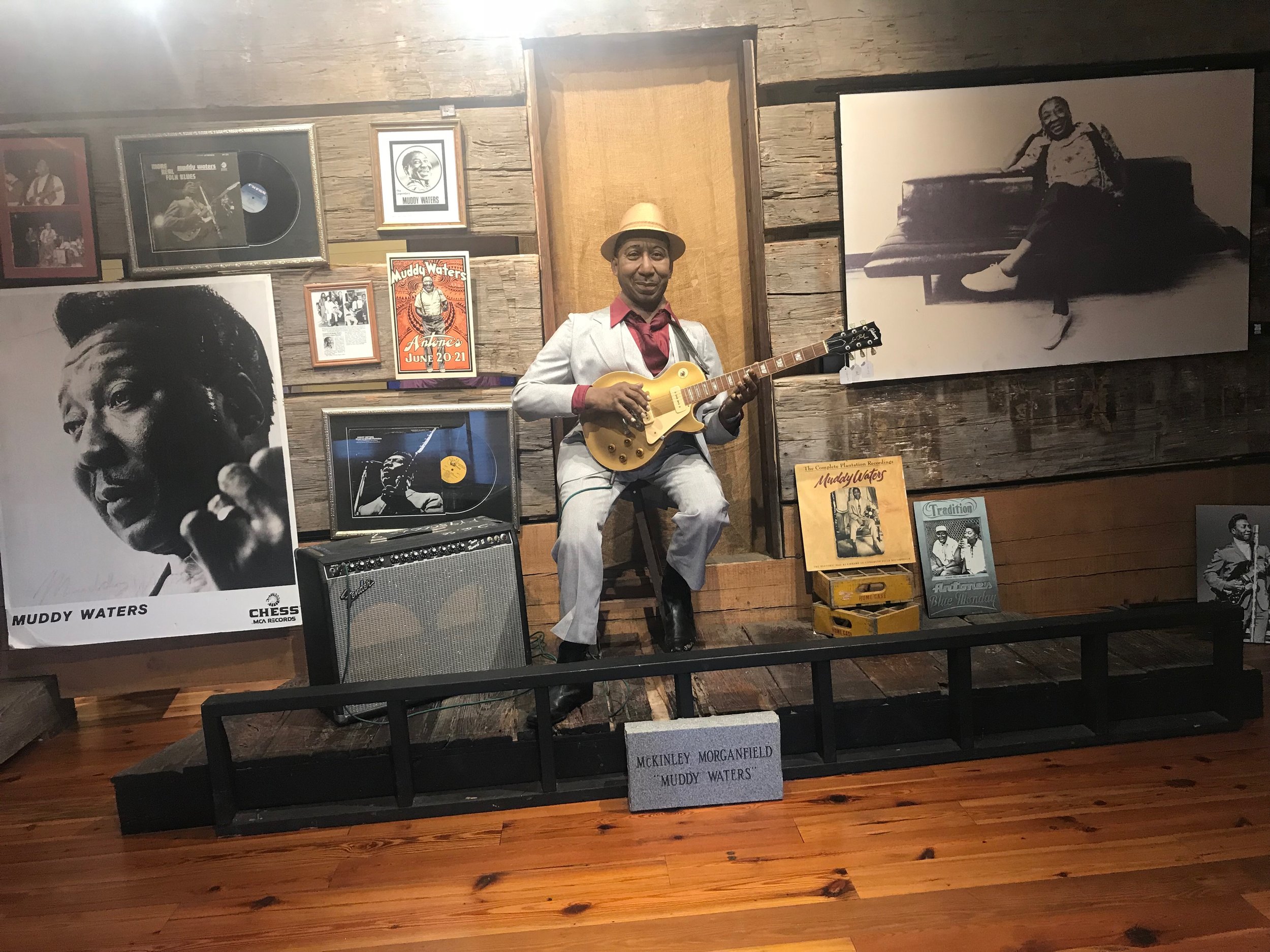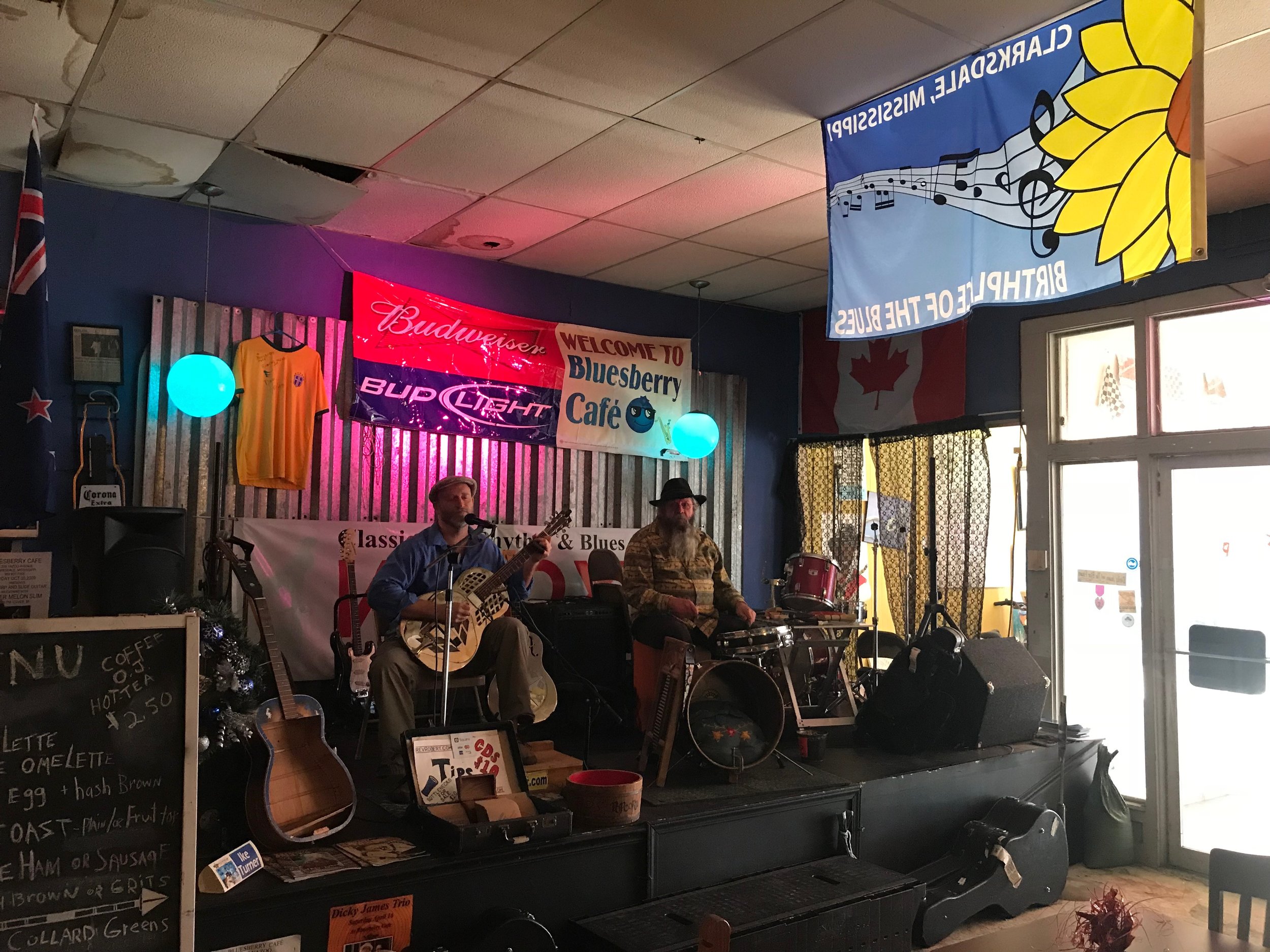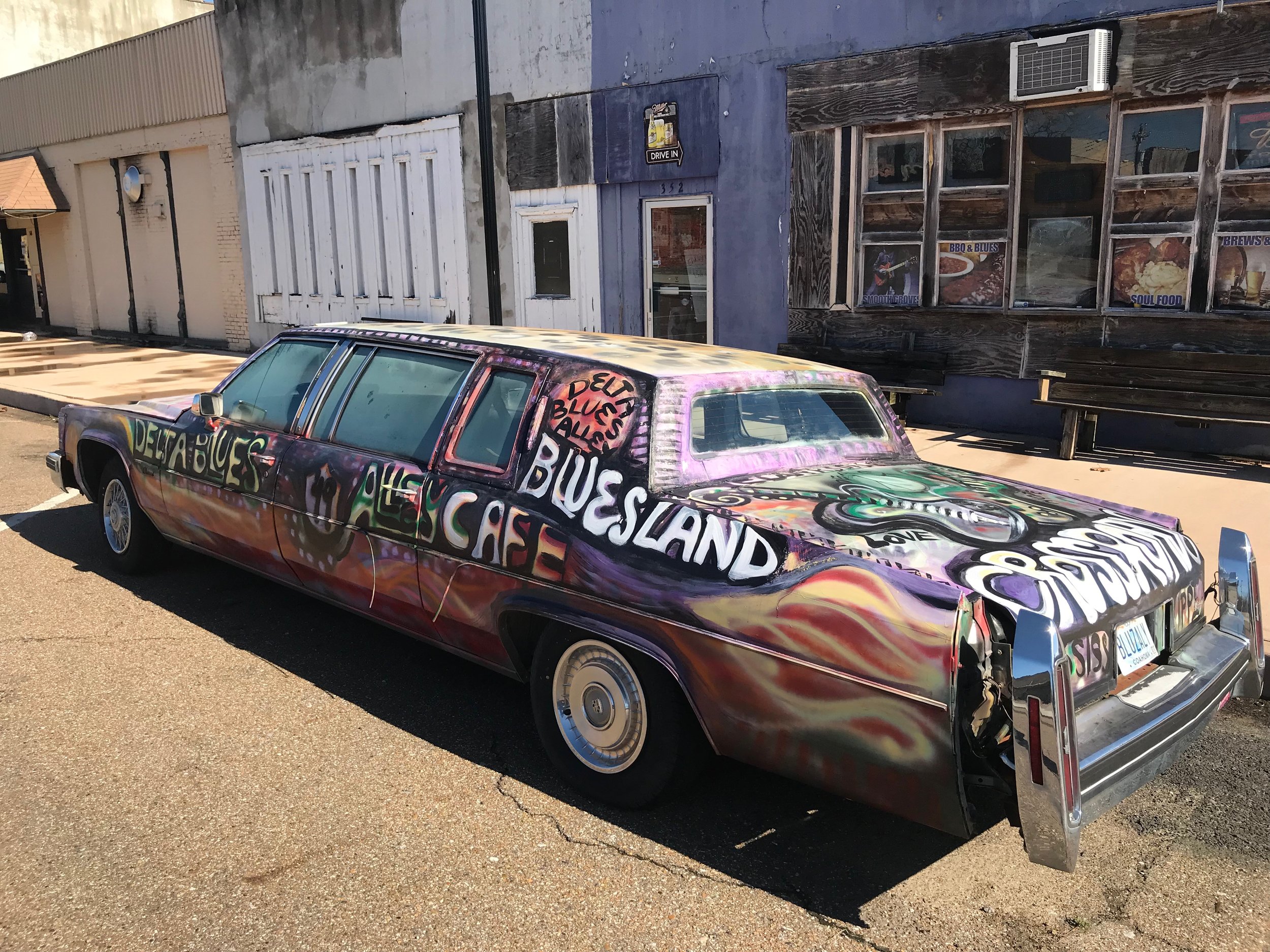I got to Clarksdale, the Mississippi Delta town featured in my latest column, just in time for the last night of the Clarksdale Film Festival. This was no red-carpet affair. The venues aren’t fancy – the screening I attended was in Our Grandma’s combination barber shop/pancake restaurant/sports bar – and the people attending aren’t fancy either.
The first thing I noticed was that, in a county that’s 80 percent African American, the small crowd at the film festival was at least 80 percent white. The entrepreneurs behind Clarksdale’s blues-based revival are mostly white as well, and mostly from out of town. The audience for traditional Delta blues has also become mostly white, and most performers of this music – invented exclusively by black people – are now, more often than not, white.
Why? I can’t tell the story of race in Clarksdale with any authority, but it’s easy to speculate. Coahoma County, which is mostly Clarksdale, has lost more than 22 percent of its population just since 2000. The people most likely to leave include the educated, the ambitious and the young – the kind of people that could help fuel an up-from-the-bootstraps, arts-based revival. White people, especially those who moved here out of love for the blues, are more likely to have the money, interest and time for things like local film festivals. Part of the legacy of centuries of slavery and Jim Crow is a stubborn tendency toward self-segregation, which may also come into play.
Whatever the reasons, the race difference was undeniable. I found myself asking: Can white people can save the blues?
The movie we watched reminded me that white people have already saved the blues, several times.
Blues was a local secret until Alan Lomax came to the Delta with his primitive recording equipment, researching folklore for the Library of Congress. He came to Clarksdale in 1941, and recorded Muddy Waters in his shack on the Stovall Plantation. (The location, under some pecan trees beside a cotton field, is marked by a Blues Trail sign; the shack is on display at the Delta Blues Museum in Clarksdale.)
His conversation with Lomax helped convince Muddy to bring his guitar to Chicago, where he became the father of Chicago blues. That’s when the blues started finding a white audience. The Rolling Stones got their name, and some of their early songs, from Muddy. Bob Dylan revisited Highway 61, borrowing liberally from Delta blues. In 1980, a couple of white Chicago guys – John Belushi and Dan Ackroyd (a regular visitor to Clarksdale) – introduced a new generation to Chicago Blues with “The Blues Brothers.”
Lomax’s original recordings of old folk musicians lay dormant for decades until a folk music revival hit college campuses in the 1960s. Obscure Delta musicians were suddenly being heard on scratchy recordings from the ‘30s and ‘40s. I was one of those guys. I remember sitting in my attic room outside Harvard Square, listening to Sonny Terry and Brownie Magee on a record I’d gotten from the Cambridge Public Library. It was one of Lomax’s recordings, and it was a revelation.
“Two Rivers Running,” the movie I saw in Clarksdale, tells the true story of three blues fans who left their Cambridge dorm rooms in a quixotic search for Son House, a blues great who had disappeared after a few recording sessions made when FDR was president. At the same time, another group of fans from California hit Mississippi looking for another long lost blues legend, Skip James.
The timing of their blues odysseys was perilous. It was the summer of 1964, and they showed up in the Delta just as thousands of other white students arrived for “Mississippi Summer,” to organize for voter rights. The two groups found their blues heroes on the same day three other students from up north met their deaths at the hands of the Ku Klux Klan.
When their young fans finally reached them, Son House and Skip James had no idea they were famous in some circles. “I thought the old music was all forgotten by now,” said House. “I never knew that so many people would want to hear it again.”
They heard it again, first at the Newport Folk Festival, as documented in the film. House and James had second musical careers. Their blues survived to be appreciated by people of all races, ages and nationalities.
I don’t know whether Clarksdale will succeed in turning the blues into an economic lifeline. I’d love to go back, though, maybe in April for one of their festivals. But I don’t really worry about the death of the blues. It’s too elemental in its rhythms, chord progressions and sentiments. The blues will always be there for new generations to discover.


